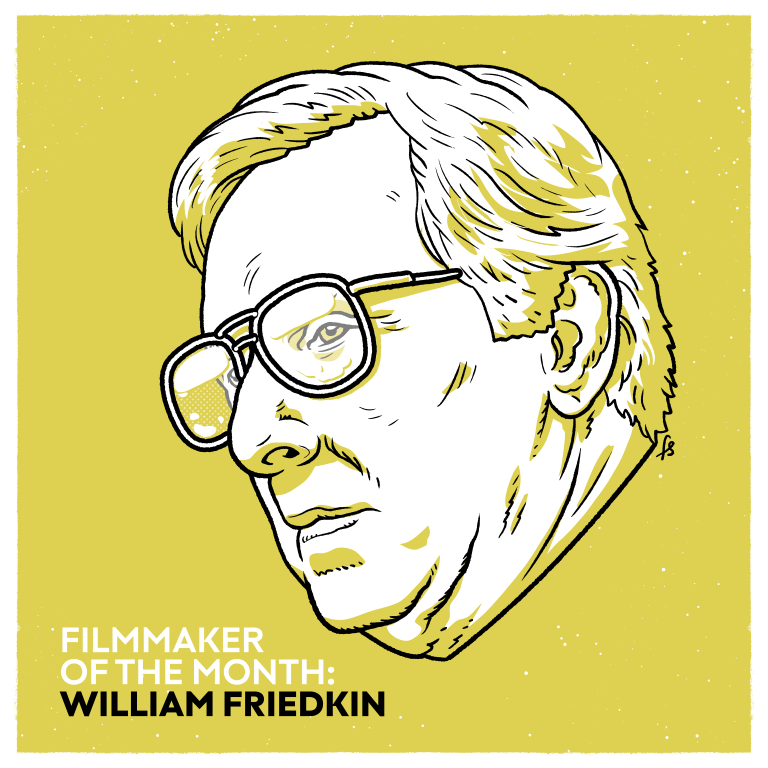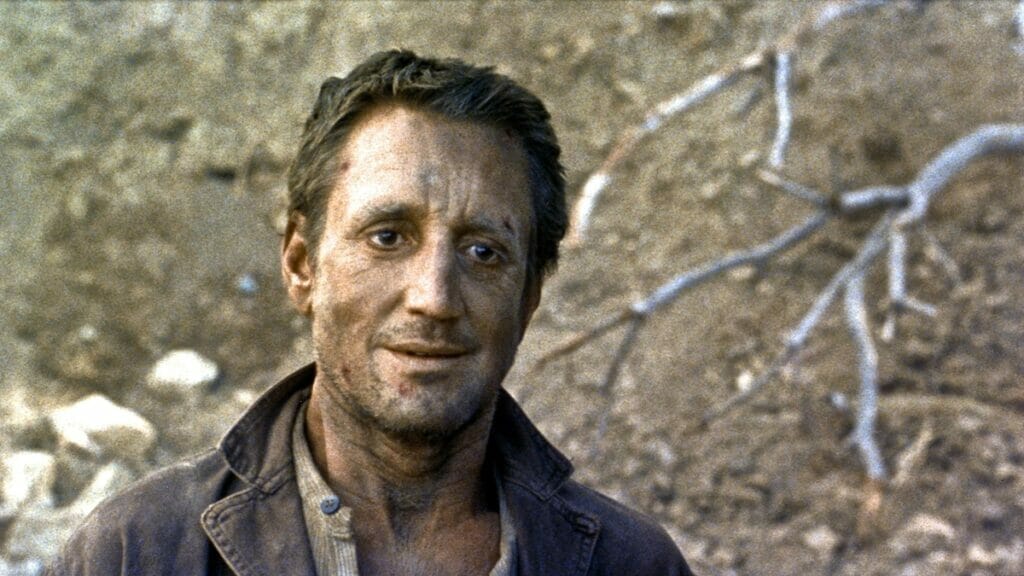Friedkin’s classic thriller frays viewers’ nerves without relying on bombast.

Every month, The Spool chooses to highlight a filmmaker whose works have made a distinct mark on the cinematic landscape.
The funny thing about William Friedkin is that if you ask six people what their favorite Friedkin film is, you’ll get six different answers. These hot and cold responses marked Friedkin’s career overall, one that, for all its faults and stumbles, was never predictable or boring. He had no trademark and refused to be pinned down.
This piece was written during the 2023 SAG-AFTRA strike. Without the labor of the actors currently on strike, the works being covered here wouldn’t exist.
If Sorcerer’s sole highlight was Roy Scheider‘s descent into hallucinatory madness amidst an almost lunar rock field, it would still be a special movie. Scheider is Jackie Scanlon, an American getaway driver turned washed-up exile in the isolated Columbian village of Porvenir. He’s the last survivor of a desperate mission to transport increasingly unstable dynamite to a burning oil well. The blaze is so bad that only controlled explosions to burn off its fuel stand a chance of extinguishing it. Everything that could go wrong has gone wrong, including Jackie’s kibashed truck giving out a long walk from the well. Haunted by—or just plain hallucinating—the laughter of his dead co-driver, he stumbles forward. Surrounded by the surreal with nothing but a rickety crate between him and the hair-trigger death, it’s all he can do besides die.
It’s a terrific sequence. Scheider’s Jackie is not holding together despite extreme pressure. After hours of perpetual hyper-stress and trauma, his psyche has crumbled such that pressing on is the only thing giving him even a vague sense of self. He’s not mustering up his courage and striving forward. He’s flailing, only barely keeping the crate steady. Director William Friedkin, cinematographers John M. Stephens and Dick Bush, and editors Bud Smith and Robert K. Lambert coolly capture Jackie’s unraveling. They juxtapose full-color flashbacks of the ill-fated heist with his perhaps doomed journey to the well with the heavily blue-washed present. Scheider’s haggard eyes overlay the blue-washed rocklands, and lightning punctuates the truck’s sputtering death.

However, while Jackie’s coming undone is a personal high point, it’s far from Sorcerer’s only standout piece of filmmaking. Adapting Georges Arnaud’s Le Salarie de la peur (previously filmed by Henri-Georges Clouzot in 1953 as the beloved The Wages of Fear) and moving its setting to the late 1970s, Sorcerer is a confident, thrilling movie that threads a fascinating needle. It’s simultaneously exciting and utterly unglamorous.
An extended prologue introduces each of the four men making on the journey. Joining Jackie are Nilo (Francisco Rabal)—a Mexican assassin—Kassem (Amidou)—a Palestinian militant who escapes arrest through luck as much as skill—and Victor (Bruno Cremer)—a French businessman who ruined his comfortable life through fraud. Their prologues showcase each lead while affording Friedkin and company a chance to play with genre. Sorcerer is primarily a thriller about the perilous journey to the well. Still, via the prologues, it’s also a crime story (Jackie), a relationship drama (Victor), a political thriller (Kassem), and a hitman movie (Nilo). They establish dissonance between nail-biting action sequences and a pointed refusal to make the lives of its protagonists glamorous or Hollywood sexy. On paper, the group seems like a cool crew—an assassin, an activist, a getaway driver, a wealthy businessman. In practice, they’re just men.
Rabal, Amidou, and Cremer match Scheider’s haunted, desperate drive in their unique ways. They all want out of Porvenir, but Nilo’s happy to shoot his way clear. Victor clings to the watch his wife gifted him for their tenth anniversary and the remote possibility of seeing her again. Kassem, when faced with the apathetic mercilessness of nature, gets creative. After all, there’s more than one way to build a bomb. While Jackie is arguably the main protagonist, each ensemble member could carry an entire film of their own.
It’s simultaneously exciting and utterly unglamorous.
Sorcerer is undoubtedly exciting but not bombastic. It’s terrifying, traumatic, and, above all else, exhausting. The characters’ lives extend beyond their most dramatic moments—Jackie’s sweet fondness for a cleaning woman who works in Porvenir’s bar, Kassem’s friendship with an older man (who might be a Nazi who fled while the fleeing was good), and Victor’s longing for his wife. Their lives intersect for a time, but their meeting is not the coming together of a team. It’s four desperate men who, for a way out, can tolerate each other as long as necessary.
Likewise, the journey to the well is thrilling and beautifully shot and edited (never mind Tangerine Dream’s score—their first!). Yet, it is not an adventure. It’s crossing a rotten bridge at a fingernail crawl, figuring out how to clear a massive fallen tree that cannot be moved by hand, getting the jump on a gang of murderous gunmen, and getting shot in a way that guarantees slow, painful death. It’s raw, bleak, and, most importantly, human.
That humanity—frayed and shambling and moving forward because what else is there to do—in concert with Friedkin’s masterful set pieces makes Sorcerer so damn compelling. There’s a fire to it, one that sticks with you.